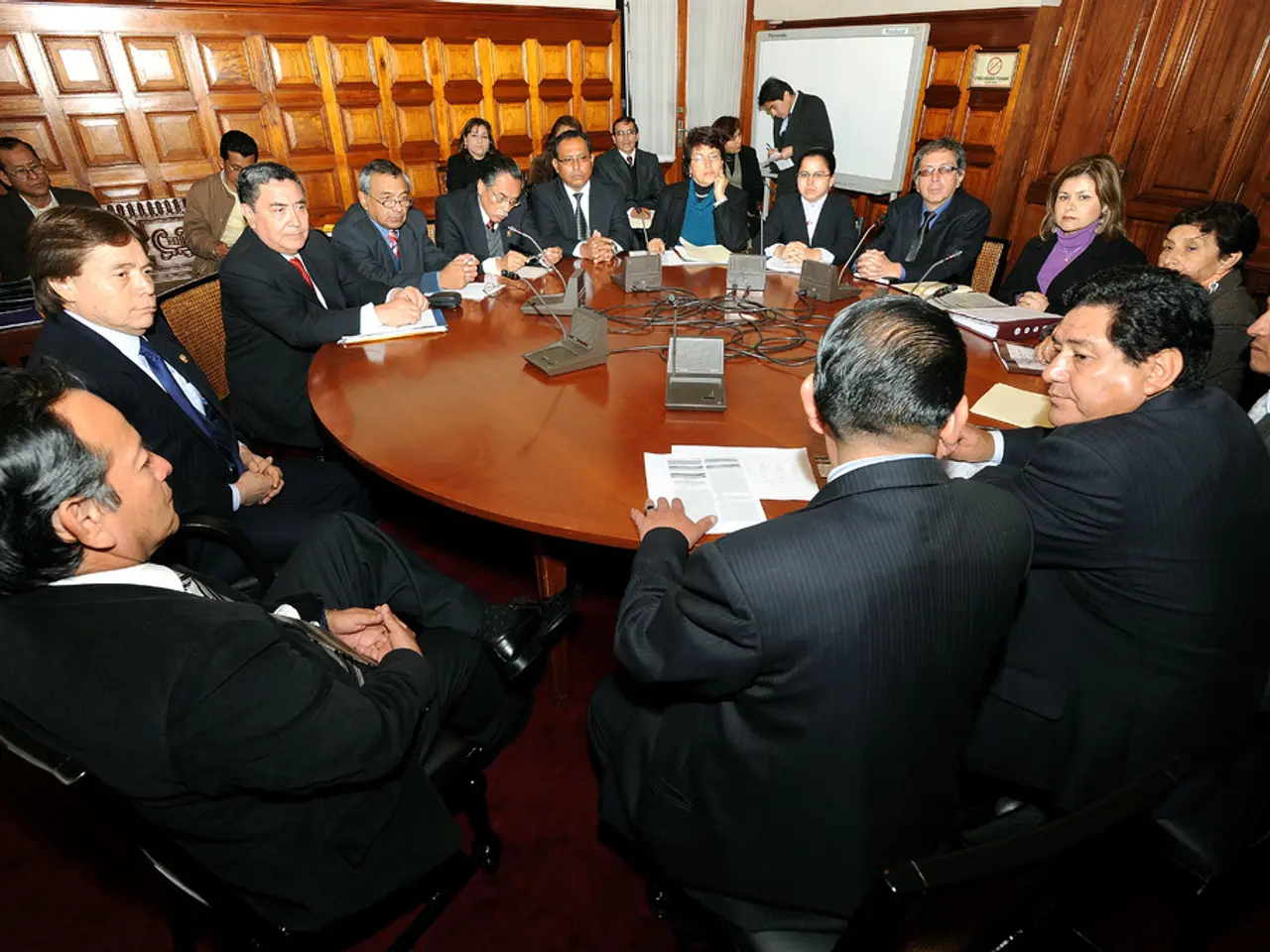The group pushes for improvements and overhauls
In a bid to revitalise the economy, the German government coalition has set its sights on an economic recovery this autumn. The coalition leaders, including Federal Chancellor Friedrich Merz (CDU) and SPD chairperson Barbara Bas, met in Berlin to discuss plans and promised a constructive approach.
The Finance Minister, Klingbeil, emphasised the importance of avoiding negotiations turning into a test of wills. Meanwhile, Merz is pushing for a swift implementation of the reformed citizen's income, a key initiative prepared by Bas as Minister of Social Affairs.
Merz has emphasised that the reformed citizen's income will become the "new basic security." However, Bas has cautioned that the savings from this reform might not reach the five billion euros demanded by Merz. Bas' concept for reducing expenses in the social sector includes tougher sanctions for social benefit recipients who do not sufficiently cooperate, aiming to save 1.5 billion euros annually next year and 3 billion euros thereafter.
The coalition is also focusing on strengthening Germany's industrial base. Merz plans to host an industry policy dialogue on the future of the struggling automobile industry, while a high-level meeting with the steel industry is planned at the Chancellery to maintain long-term steel production in Germany.
However, the German automobile industry, including the supply industry, is currently suffering, and the coalition has yet to find a solution to the 30 billion hole in the 2027 federal budget. Heidi Reichinnek, Left party faction leader, criticised the coalition for its lack of planning in budget matters.
Bas has stated that a stronger economy would help save money in the social sector due to more people entering the workforce. This comes as the German steel industry has been producing less steel due to intense competition, high energy prices, economic weakness, and tariffs imposed by US President Donald Trump.
Despite internal strife in the first 100 days, Merz and Bas had a reconciliatory dinner the evening before the coalition meeting, indicating a willingness to work together towards a common goal. The coalition must quickly present a comprehensive package to close the budget gap for 2027.
In addition, Merz plans to address the debate about the costs of the social state, with Bas' previous criticism of the debate as "bullshit" seemingly put aside for the sake of cooperation. Barbara Bas' concept also includes potentially changing the additional earnings rules for Bürgergeld recipients and simplifying the overlapping social benefits system to increase work incentives and reduce administrative costs.
The German coalition's focus on economic recovery and industrial strength is a response to the challenges faced by several industries, including the automobile and steel sectors. The coming months will be crucial as the coalition works to present a viable plan for economic recovery and budget management.
Read also:
- Upcoming iPhone Model: What We Understand Thus Far
- Diversity Among Varieties of Green: Each one has its uniqueness
- Top Trends: TheCompilation of Up-to-date Information in the World of Data News
- Renowned reproductive medicine expert, Dr. Nirmala Sadasivam, honored with the distinguished Dronacharya Award for dedicating 36 years of her career.








